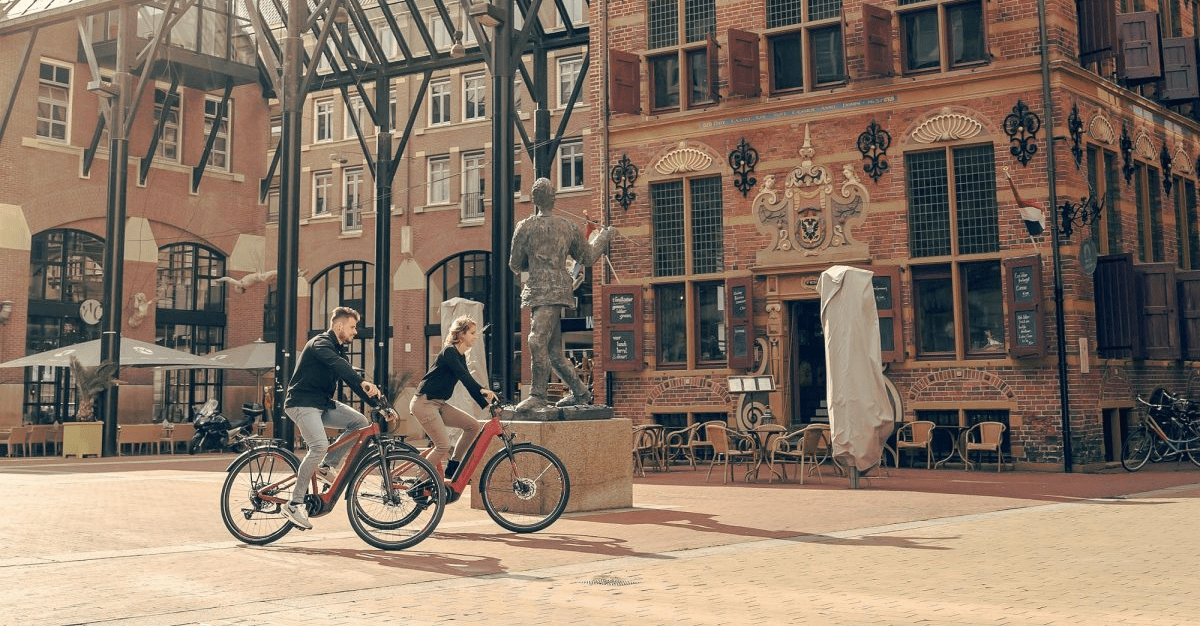The European Parliament has approved the "Cycling Strategy" inviting member states to increase investments in the construction of cycling infrastructure and support industrial policies for the entire sector.
The French MEP is promoting the plan Karima Delli, president of the Transport and Tourism Committee of the European Parliament, who believes that the strategy "it will transform the bicycle into a real means of daily transport, on the same level as the car or the subway. The bicycle is not only part of free time and sport, but becomes a means of transport in its own right, to be made accessible to all”.
This document is a plan of intent composed of 18 points which therefore starts from a fundamental concept: the bicycle must be recognized as a sustainable and productive means of transport.
In this regard, it is necessary to incentivize the sector through a European strategy aimed at doubling, by 2030, the number of kilometers traveled by bicycle in Europe.
A very ambitious goal, supported by concrete actions.
The development of “Cycle highways” to improve connectivity between suburban areas and urban centres, thus promoting synergy between cycling and other transport facilities, such as more spaces for bicycles on trains or increased parking at stations and mobility centres.
The plan also focuses heavily on the development ofEuropean two-wheeled industry, inviting States to support the production of “Made in Europe” bikes and components, bridging the investment gap and stimulating the competitiveness of the EU industry.
Here too, concrete actions are envisaged aimed at promote reshoring and the supply chain security, encouraging jobs, creating cycling hubs and improving professional training.
The Bike Industry in Europe it is an extremely important production sector: according to Eurostat data, in fact, Europe produced 13.5 million pieces with an increase in TP1 compared to the previous year.
This is also thanks to reshoring, the tendency of companies to bring the production chain back to Europe to overcome supply chain difficulties.
“The recognition by the European Parliament of the value of the bike industry in the economic, manufacturing and technological fabric of our continent is a strong signal because the Parliament asks the Commission to work on an inter-institutional strategy. This resolution touches on very concrete issues, key messages that reflect all the key points of our requests made in Brussels over the years, including the invitation to the European Commission and the Member States to support the production of Made in Europe bikes and components through a industrial policy guided and coordinated by the EU with ad hoc financing and fiscal incentives, such as VAT reduction, for example", said Manuel Marsilio, general manager of the Confederation of the European Cycling Industry (Conebi).
The central point of the strategy is the solicitation of member countries for VAT reduction on bicycles. Currently the measure has been adopted only in Portugal which, since January, has cut the tax from 23% to 6%.
Reduce value added tax not only for bicycle purchases, but also for rental and the repair it would give an important boost to the entire sector.
“Now it is up to the European Commission and the Member States to dialogue with Parliament in this direction – added Marsilio – there are many regulatory dossiers on which Conebi requests thoughtful decisions, such as on the regulatory classification of e-bikes or on the legislative follow-up linked to the development of future batteries, just to name a few".

